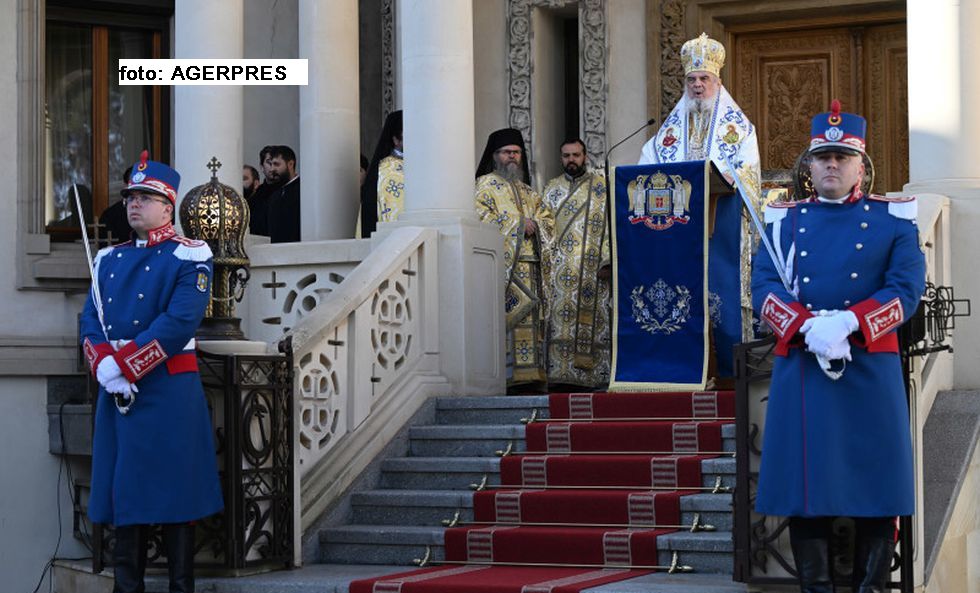Mircea Eliade
An introduction to one of Romanias greatest 20th century cultural figures.

Steliu Lambru, 14.09.2020, 14:00
A complex
author whose interests varied from the history of religions to literature, Mircea
Eliade was also known internationally, especially in the US, where he taught,
at the Chicago University, from 1956 until his death in 1986. Eliade was born
on 9th March 1907 in Bucharest into a family originating from Moldavia,
Romania’s eastern province. His father was an army officer while his mother looked
after the family. Eliade studied in the same high school as other important
Romanian cultural figures such as the writer and journalist Arșavir Acterian,
the poet, writer and director Haig Acterian, the philosopher Constantin Noica
and the art critic Barbu Brezianu.
As a
teenager, apart from literature, philosophy and history, Eliade was also
interested in natural science, chemistry and the occult. His favourite writers
at this time included Honore de Balzac and Giovanni Papini. Eliade studied
letters and philosophy at the Bucharest University and graduated with a thesis
on the Italian utopian thinker Tommaso Campanella.
Mircea
Eliade’s work is extremely large and diverse and includes more than 80 books of
literature and the history of religions, being one of the most influential historians
of religions in his day. In this field alone, he authored around 30 books that
went on to be translated into 18 different languages. His literary output
includes 12 novels, the most popular being Diary of a Short-Sighted
Adolescent, Bengal Nights and The Forbidden Forest, which you
can find in English, as well as novellas like Miss Christina, With
the Gypsy Girls, The Secret of Dr. Honigberger and The Snake.
Mircea
Eliade was one of the first Romanian orientalists who immersed himself in the
culture of India. In love with India, he travelled there in 1928 to study in
Calcutta, where he learnt Sanskrit and became familiar with Indian spirituality.
His novel Bengal Nights is in fact dedicated to the daughter of his Indian
landlord. He fell in love with her but couldn’t marry her because of her father’s
opposition. In 1933 when he returned to Romania, Eliade wrote a doctoral thesis
on yoga practices.
The
archives of Radio Romania’s Oral History Centre contain an exceptional recording
of an interview given by Eliade to literary critic Monica Lovinescu in the
1970s on Radio Free Europe. In this interview, Eliade described his Indian
experience as a time that helped him understand the course of history as the
dialogue between cultures. His study of religious beliefs and ideas helped him
make a step forward and opened up a universe that had been inaccessible to him
until then. Mircea Eliade:
When
I came back from India I realised the limitations of western cultural
provincialism; I realised that after WWII we must find a bridge between
different cultures, between western culture, oriental culture and archaic cultures;
that the simplest and most convincing introduction into a given culture is understanding
its tradition, which is always religious in origin and structure. It seemed to
me that a history of religions was the first step, the first stage in trying to
understand other cultures on an equal basis, through dialogue. So I was sure
that these books would be received well and that they would interest people,
because historical reality was proving me right.
Mircea
Eliade saw himself as both an academic and a writer. His academic work earned
him a career at the Chicago University, where, together with the German academic
Joachim Wach, he founded Divinity School. But he also couldn’t forget his native
Romanian language and literature helped him return to his roots, as he
explained:
By
writing literature I return to my roots, which is normal. It’s the language I never
wanted to lose and I need this dreaming and working in my language for the
health of my soul. I can easily translate certain literary texts into French or
English. I can, perhaps, write them directly into English or French, but for me
it is important to maintain this desire not to lose contact with my own history,
which is obviously the history of a Romanian who worked both in Romania and
abroad.
To those
who said that the influence of religion was waning, Eliade responded that the
desacralisation of contemporary world is in fact a process of camouflaging the
sacred, which people still need:
This
need to listen to a story, at first mythical, about how the world came to be,
how man came to be, how society was formed, etc., is a need that I believe is
fundamental. It is a layer of consciousness, not another stage in the history of
consciousness. I don’t believe man can exist as a man without being told his
history and the history of the world in which he exists and which continues to
exist.
Mircea
Eliade lived in exile in the West since 1945, when the communist regime came to
power in Romania. He died in Chicago on 22nd April 1986, leaving
behind an impressive body of work. He was made a member of the Romanian Academy
posthumously, in 1990. (CM)





























